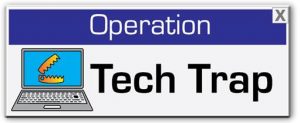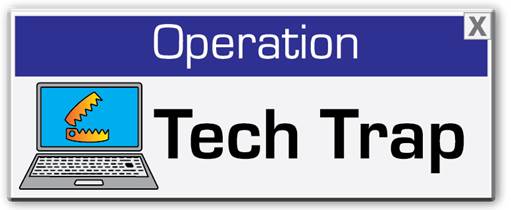 In 2014 we shared a cautionary story about one of our clients who received a fake tech support call. Fake tech support scams have cost consumers hundreds of dollars over the years. The US Federal Trade Commission has partnered with state, federal and international law enforcement officials to end these scams that trick people into thinking their computers are infected with malware and viruses and charge them for un-needed repairs.
In 2014 we shared a cautionary story about one of our clients who received a fake tech support call. Fake tech support scams have cost consumers hundreds of dollars over the years. The US Federal Trade Commission has partnered with state, federal and international law enforcement officials to end these scams that trick people into thinking their computers are infected with malware and viruses and charge them for un-needed repairs.
Earlier this month, the FTC launched Operation Tech Trap, a comprehensive program to challenge tech support scammers through sixteen civil and criminal actions. In four of the Tech Trap cases, the FTC and the State Attorney General’s of Florida, Alabama, and Ohio allege that the defendants scammed consumers for millions of dollars. In three of those cases, federal judges have entered temporary restraining orders to halt the practices, freeze the scammer’s assets, and appoint temporary receivers to take control of the scammer’s businesses. n addition, settlements were announced in two pending cases. Following up on a complaint filed last year against Help Desk National and a host of others, the FTC and the Florida AG have shut down an operation that ran a tech support boiler room in Boynton Beach, Florida. The defendants in that matter are banned for life from providing tech support products or services and will turn over $700,000 in assets.
Besides making unsolicited tech support phone calls to consumers, the scammers run online ads that resemble popup security alerts from Microsoft, Apple or other known companies. The alarming ads warn users that their pcs are infected with viruses or under hack attack and can include countdown clocks, alarms, and a flashing phone number to call for assistance. Once the scammers have a user on the phone, they will claim to need remote access to the PC to run diagnostics. The tests will “reveal” serious problems that can only be resolved by their certified technicians for a hefty fee. These companies use high-pressure tactics to strong-arm consumers into paying hundreds of dollars for unnecessary repairs, anti-virus protection or software, and other products and services.
If you receive a call or popup, the The FTC advises the following actions:
- If you get an unexpected or urgent call from someone who claims to be tech support, hang up. It’s not a real call. And don’t rely on caller ID to prove who a caller is. Criminals can make caller ID seem like they’re calling from a legitimate company or a local number.
- If you get a pop-up message that tells you to call tech support, ignore it. There are legitimate pop-ups from your security software to do things like update your operating system. But do not call a number that pops up on your screen in a warning about a computer problem.
- Get rid of malware. Update or download legitimate security software and scan your computer. Delete anything the software says is a problem.
- Change any passwords that you shared with someone. Change the passwords on every account that uses passwords you shared.
- If you paid for bogus services with a credit card, call your credit card company and ask to reverse the charges. Check your statements for any charges you didn’t make, and ask to reverse those, too. Report it to ftc.gov/complaint.
- If you’re concerned about your computer, call your security software company directly – but don’t use the phone number in the pop-up or on caller ID. Instead, look for the company’s contact information online, or on a software package or your receipt.
For more information on solutions for running your businesses’ technology more efficiently, visit our website or contact Megan Meisner at mmeisner@launchpadonline.com or 813 448-7100 x210.

